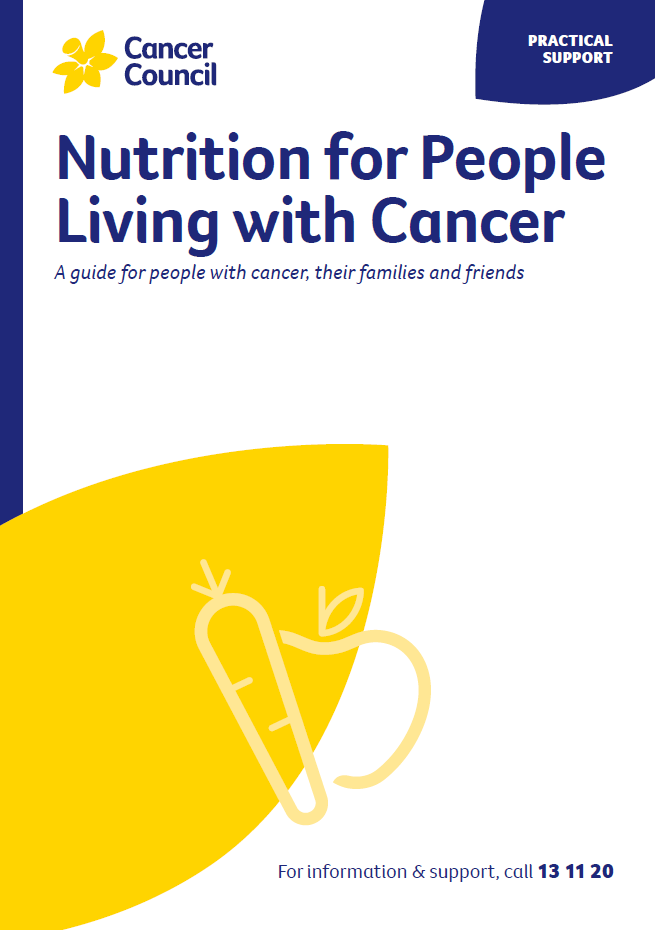- Home
- About Cancer
- Living well
- Living well after cancer
- Looking after yourself
Looking after yourself
Find out how to take care of yourself after cancer treatment. Explore lifestyle changes, exercise routines, and healthy eating for better overall health.
Learn more about:
Overview
It’s important to look after your wellbeing after cancer treatment. For some people, this may mean making big lifestyle changes and embracing new health practices. For other people, it may be a small increase in exercise or a healthier diet. Coming up with a plan for how to look after yourself can help restore a sense of control.
Research suggests that a healthy lifestyle (in combination with conventional treatment) can stop or slow the development of many cancers. We discuss ways to adapt your lifestyle to help reduce the risk of cancer coming back or a new cancer developing.
Some people who have had cancer may be at an increased risk of other health problems, such as heart disease, osteoporosis, stroke or type 2 diabetes. The lifestyle changes recommended for cancer prevention can also help reduce your risk of developing other health problems.
Ways to reduce risk of recurrence
 |
Quit smokingIf you smoke, quit; and avoid second-hand smoke. There is no safe level of tobacco use. |
 |
Be SunSmartProtect yourself from the sun (slip, slop, slap, seek, slide). |
 |
Be a healthy body weightKeep your weight within the healthy range and avoid weight gain as an adult. |
Be physically active and sit lessAim for 150 minutes (2½ hours) of moderate intensity exercise or 75 minutes (1¼ hours) of vigorous exercise each week and 2–3 strength-training (resistance exercise) sessions each week. |
|
Limit alcoholDrink no more than 10 standard drinks a week and no more than 4 standard drinks on any one day. |
|
 |
Eat wellAim for 2 serves of fruit and 5 serves of vegetables or legumes a day. Eat a variety of wholegrain, wholemeal and high-fibre foods. Limit red meat and avoid processed meat. |
I was completely overwhelmed by all the lifestyle advice I received from doctors once treatment was over. I decided to focus on one change at a time. I started by doing 100 steps in the backyard until I gradually built up to a 30-minute walk five days a week and strength training on two days. It took me almost six months to get there, but it was really satisfying to feel in control of my wellbeing.
Beth
Video: What role does exercise play in my cancer recovery?
Watch this webinar to learn more about the role exercise plays in cancer recovery and share how you can start and adjust exercise after treatment.
More resources
Prof Michael Jefford, Medical Oncologist and Director, Australian Cancer Survivorship Centre, Peter MacCallum Cancer Centre, VIC; Lucy Bailey, Nurse Counsellor, Cancer Council Queensland; Philip Bullas, Consumer; Dr Kate Gunn, Clinical Psychologist and Senior Research Fellow, Department of Rural Health, University of South Australia, SA; Rosemerry Hodgkin, 13 11 20 Consultant, Cancer Council WA; Prof David Joske, Clinical Haematologist, Sir Charles Gairdner Hospital and Clinical Professor of Medicine, The University of Western Australia, WA; Kim Kerin-Ayres, Clinical Nurse Consultant, Cancer Survivorship, Concord Hospital, NSW; Sally Littlewood, Physiotherapist, Seymour Health, VIC; Georgina Lohse, Social Worker, GV Health, VIC; Melanie Moore, Exercise Physiologist and Clinical Supervisor, University of Canberra Cancer Wellness Clinic, ACT; June Savva, Senior Clinician Dietitian, Nutrition and Dietetics, Monash Cancer Centre, Monash Health, VIC; Dr Elysia Thornton-Benko, Specialist General Practitioner and Research Fellow, University of New South Wales, NSW; Prof Janette Vardy, Medical Oncologist, Concord Cancer Centre and Professor of Cancer Medicine, The University of Sydney, NSW; Lyndell Wills, Consumer.
View the Cancer Council NSW editorial policy.
View all publications or call 13 11 20 for free printed copies.

